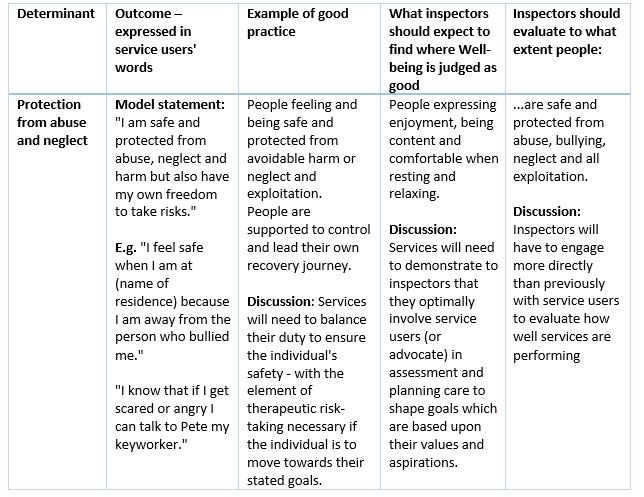
The Social Services and Well-being (Wales) Act, 2014, will in the words of the CSSIW (which enforces compliance) “transform the way social services are delivered, promoting people’s independence to give them stronger voice and control.” In the first of four articles, this week, we look at the ‘well-being‘ theme within the new interim inspection framework for Wales.
Transformed Support and Services
Now “transform” is a strong word which takes some living up to. It is tempting to think that things will rumble on much as before and that nothing fundamental will change. In other words, the skeptic might have thought the word “transform” is long on aspiration and short on delivery. But there are some strong drivers at work;
- Increased demand upon social care;
- Financial constraints;
- Insights into ‘what-works’ for individuals (so highly individualised and person-centered support plans);
- Commitment to enabling individuals normalised life courses (including wherever possible access to the work market);
- Recognition that rights and choice are enhanced by supporting individuals to make a contribution to their community and wider society.
These drivers whilst being embodied within the 2014 Act have now been developed within the Regulation and Inspection of Social Care Wales Act (2016), and the new interim guidelines for inspection which have were issued by the CSSIW in October. Collectively these measures are giving substance to the transformation. How so?
New Interim Inspection Framework
There are four themes upon which the inspection framework is based;
- Well-being;
- Care and support;
- Environment;
- Leadership and management.
If we take the first of these – ‘well-being’, this is what the CSSIW ‘Framework For Younger Adults’ says…
“By Well-being …we mean – People are happy, healthy and safe. They know and understand what care, social support and opportunities are available to them and they get the help they need, when they need it, in the way they want it. Their rights are protected, they have a voice and choice and as far as practicable control in making decisions about their lives.”
There are eight (plus an additional 2) determinants which need to be realised in care and support outcomes. The determinants are; (1) physical and mental health and emotional well-being; (2) protection from abuse and neglect; (3) education, training and recreation; (4) domestic, family and personal relationships; (5) contribution made to society; (6) securing rights and entitlements; (7) social and economic well-being; (8) suitability of living accommodation. In relation to an adult, “well-being” also includes— (9) control over day to day life; and (10) participation in work.
Worked Example – Protection from Abuse and Neglect
It is worth distinguishing between determinants as ‘ingredients’ necessary for life-quality, as expressed here in numbers 1-10 (above), and realising these determinants within the lived experience of the service user as ‘outcomes’. Where this occurs, the service user (or their advocate on their behalf) will be able to express this in a first-person statement such as “I am…”, “I can…”, “I have…”, “I go…” “I do…” etc. So, in the table below, adapted from the CSSIW ‘Framework for Younger Adults’, we can develop a worked example.
Table; showing outcomes based on ‘Protection from abuse and neglect’ determinant.
It will take focus, imagination and commitment to develop support plans in this well-being focused way, but that is now the clear direction of travel.
http://cssiw.org.uk/docs/cssiw/general/161003youngadultsframeworken.pdf







